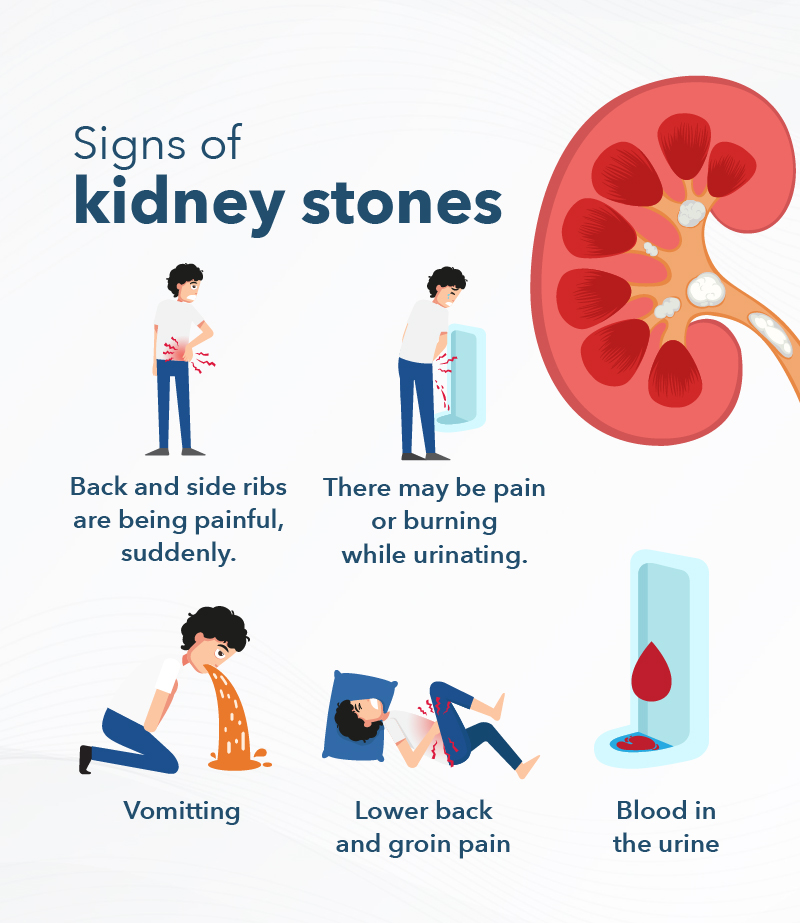Kidney stones are small, hard deposits that form inside your kidneys. They can vary in size, ranging from as small as a grain of sand to as large as a golf ball. Kidney stones often cause intense pain and can disrupt your daily life until they pass through your urinary tract or are removed.
Here are some common symptoms associated with kidney stones:
- Severe Pain: One of the hallmark symptoms of kidney stones is intense pain in the back, side, abdomen, or groin. The pain can come in waves and may fluctuate in intensity as the stone moves through your urinary tract.
- Painful Urination: You may experience pain or a burning sensation when urinating. This discomfort is typically felt as the stone irritates the lining of the urinary tract.
- Blood in Urine: Kidney stones can cause bloody or pink-colored urine. This occurs because the stone can damage the delicate tissues of the urinary tract, leading to traces of blood in the urine.
- Frequent Urination: You may feel the need to urinate more frequently than usual, even if only small amounts of urine are passed each time. This can happen as the stone irritates the bladder or obstructs the flow of urine.
- Nausea and Vomiting: Some people with kidney stones may experience nausea and vomiting, which can occur due to the severe pain or as a response to the body’s stress from the stone.
- Fever and Chills: In some cases, kidney stones can cause an infection, which may lead to fever and chills. This is more common if the stone causes a blockage that prevents urine from draining properly from the kidney.
- Difficulty Sitting Still: The pain from kidney stones can be so severe that you may find it difficult to sit still or get comfortable in any position. People often feel the need to pace, rock back and forth, or find ways to alleviate the discomfort.
- Cloudy or Foul-Smelling Urine: In addition to blood, urine affected by kidney stones may appear cloudy or have a strong odor. This can be a sign of an infection or the presence of substances that contribute to stone formation.
It’s important to note that the severity and type of symptoms can vary depending on the size of the stone, its location within the urinary tract, and whether it is causing complications such as infection or blockage. If you suspect you have kidney stones or are experiencing symptoms, it’s crucial to seek medical attention promptly. A healthcare provider can diagnose the condition through imaging tests and recommend appropriate treatment to help alleviate symptoms and prevent future stones.





Comments